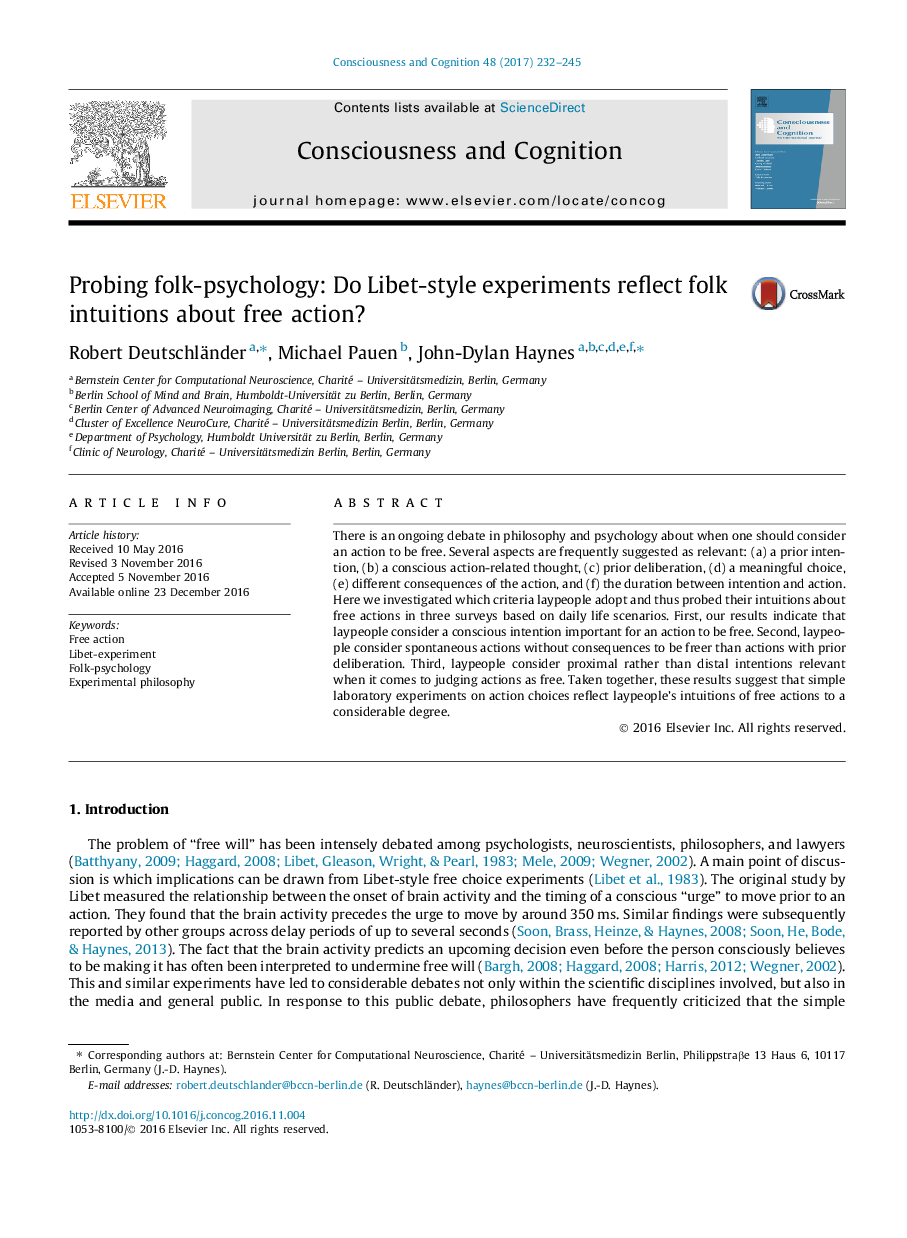| کد مقاله | کد نشریه | سال انتشار | مقاله انگلیسی | نسخه تمام متن |
|---|---|---|---|---|
| 5041908 | 1474163 | 2017 | 14 صفحه PDF | دانلود رایگان |
- Laypeople's intuitions about free action support Libet-style experiments.
- Prior conscious intention is important for freedom judgements.
- Respondents consider spontaneous actions without consequences most free.
- Distal intentions are not considered relevant for free actions.
There is an ongoing debate in philosophy and psychology about when one should consider an action to be free. Several aspects are frequently suggested as relevant: (a) a prior intention, (b) a conscious action-related thought, (c) prior deliberation, (d) a meaningful choice, (e) different consequences of the action, and (f) the duration between intention and action. Here we investigated which criteria laypeople adopt and thus probed their intuitions about free actions in three surveys based on daily life scenarios. First, our results indicate that laypeople consider a conscious intention important for an action to be free. Second, laypeople consider spontaneous actions without consequences to be freer than actions with prior deliberation. Third, laypeople consider proximal rather than distal intentions relevant when it comes to judging actions as free. Taken together, these results suggest that simple laboratory experiments on action choices reflect laypeople's intuitions of free actions to a considerable degree.
Journal: Consciousness and Cognition - Volume 48, February 2017, Pages 232-245
